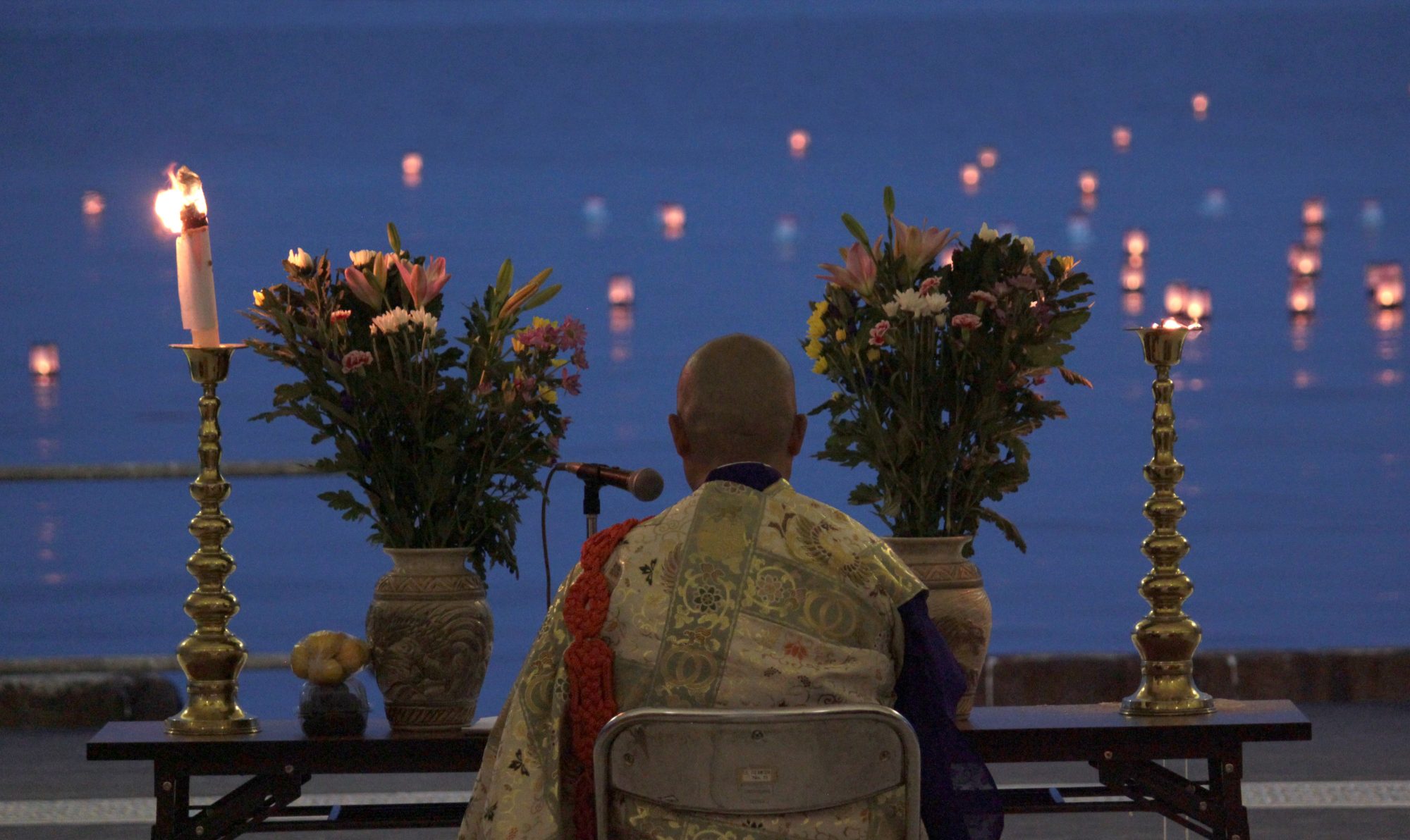Uncanny Terrain directors Junko Kajino and Ed M. Koziarski talk with Alison Cuddy on Chicago Public Radio’s World View.
Trailer
Rio+20: Four Fukushima Farmers
This video, capturing the diverse views of four Fukushima activist farmers, screens beginning June 16 in the Rio+20 United Nations Sustainable Development Conference, where one of our main subjects, Seiji Sugeno, director of the Fukushima Organic Farmers Network, is presenting.
Sugeno soil test
One Year After the Meltdown
Eating Fukushima

by Ed M. Koziarski
North Avenue Magazine
Jan. 28, 2012
When does a victim become a perpetrator? That’s the question that kept coming up as we made our way across the irradiated landscape.
Many foreigners fled Japan after the tsunami triggered a meltdown at the Fukushima Daiichi Nuclear Power Plant last March. My wife Junko Kajino and I went the opposite way, spending five months inside the U.S.-declared 50-mile no-go radius for our in-progress documentary Uncanny Terrain.
Safecast Radiation Monitoring Seminar
At Tokyo Hacker Space on 6/24/11, members of the NGO Safecast present the goals, methods, and results of their ongoing volunteer project to independently measure and map contamination levels from the Fukushima Daiichi Nuclear Power Plant fallout at hundreds of thousands of sites across Japan.
 Uncanny Terrain is a documentary about organic farmers facing Japan’s nuclear crisis, and an international online community fostering dialogue on food safety, sustainable agriculture, alternative energy and disaster response. Please keep the conversation going by making a tax-deductible donation.
Uncanny Terrain is a documentary about organic farmers facing Japan’s nuclear crisis, and an international online community fostering dialogue on food safety, sustainable agriculture, alternative energy and disaster response. Please keep the conversation going by making a tax-deductible donation.
New intern on Colors of the Four Seasons Farm
Can’t sell rice, but has to grow it anyway
Takahashi was banned from selling rice grown on his land in Nishigo Village, Nishishirakawa-gun, Fukushima, due to soil contamination from the nuclear disaster. But he was also told that to receive compensation for the lost income, he must grow the rice. So he’s planting the crop, expecting it will never be eaten.
Fukushima pride is strong close to evacuation zone
-
 Ohashi owns a successful baked goods company in Fukushima City. He has used grains from organic farmers in Fukushima Prefecture, but now he may have to look elsewhere. Even if the grains are uncontaminated, the stigma against Fukushima produce would likely hurt sales. Ohashi’s health is frail but he has no intention to leave despite typical background radiation here of 1 microsievert/hour. He says the disaster has strengthened local pride, and people here are learning to living with radiation.
Ohashi owns a successful baked goods company in Fukushima City. He has used grains from organic farmers in Fukushima Prefecture, but now he may have to look elsewhere. Even if the grains are uncontaminated, the stigma against Fukushima produce would likely hurt sales. Ohashi’s health is frail but he has no intention to leave despite typical background radiation here of 1 microsievert/hour. He says the disaster has strengthened local pride, and people here are learning to living with radiation. -
 A pair of comedians bartend at the Showtime bar in Fukushima City. I sat down with my camera gear and they kept calling me Michael Moore (pronounced mo-ah).
A pair of comedians bartend at the Showtime bar in Fukushima City. I sat down with my camera gear and they kept calling me Michael Moore (pronounced mo-ah). -
 Sugiuchi was banned from selling his crops due to high contamination levels found near his farm in Haramachi. Now he’s researching soil remediation.
Sugiuchi was banned from selling his crops due to high contamination levels found near his farm in Haramachi. Now he’s researching soil remediation. -
 Mrs. Sugiuchi watches one of their greenhouses in Haramachi being tested for radiation.
Mrs. Sugiuchi watches one of their greenhouses in Haramachi being tested for radiation. -
 .7 millirems (7 microsieverts) per hour on the highway in Iitatemura.
.7 millirems (7 microsieverts) per hour on the highway in Iitatemura. -
 4.1 millirems/hour (14,350 counts per minute or 41 microsieverts/hour) on a mountain road in Iitatemura. The town is mostly abandoned but on Sunday there were some people around. They apparently came back to check on their property.
4.1 millirems/hour (14,350 counts per minute or 41 microsieverts/hour) on a mountain road in Iitatemura. The town is mostly abandoned but on Sunday there were some people around. They apparently came back to check on their property. -
 The edge of the evacuation zone in Iitatemura.
The edge of the evacuation zone in Iitatemura.













